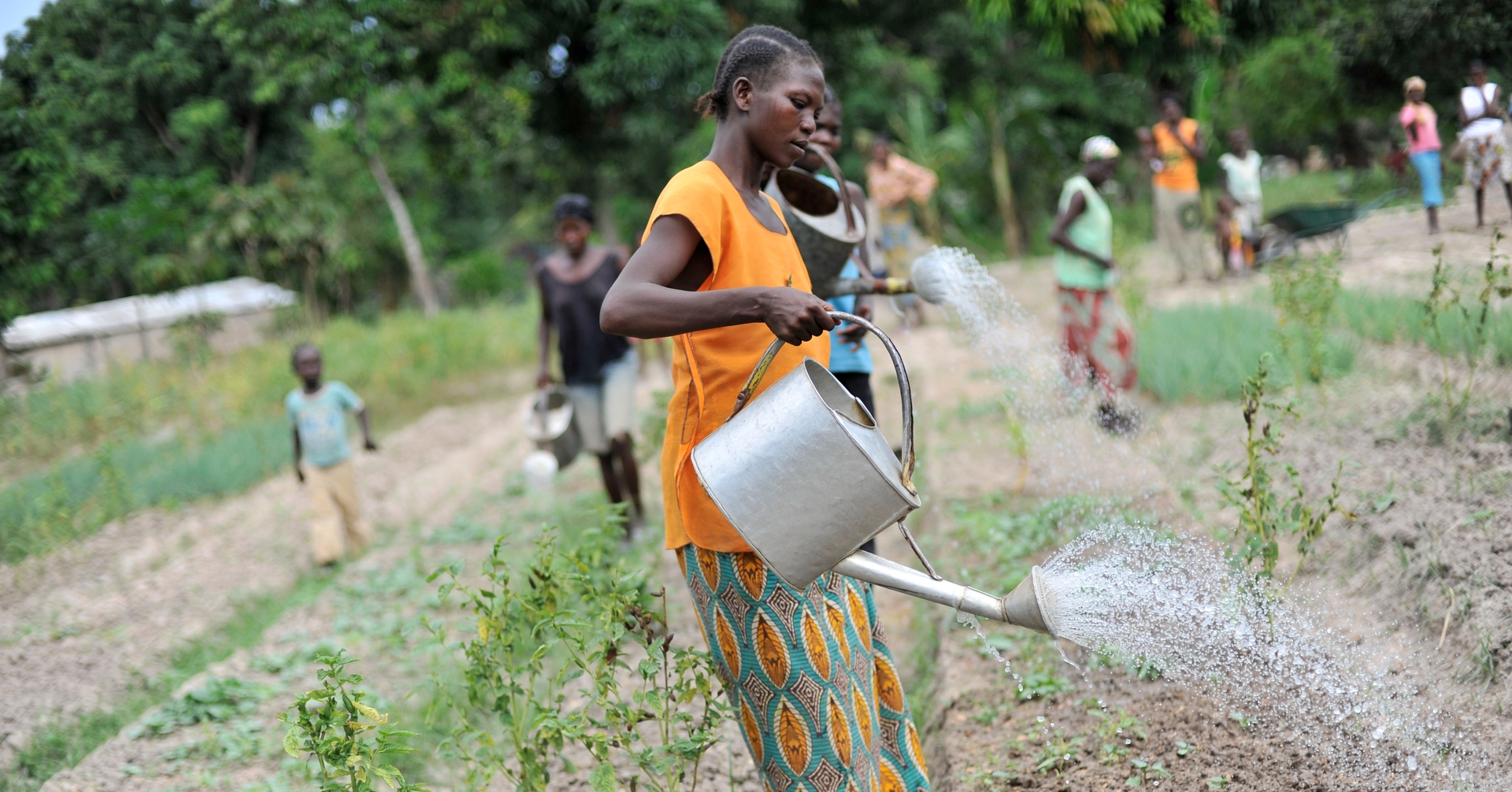November 22, 2025 | 19:38 GMT +7
November 22, 2025 | 19:38 GMT +7
Hotline: 0913.378.918
November 22, 2025 | 19:38 GMT +7
Hotline: 0913.378.918

FAO will launch a global assessment on irrigation needs and irrigation potential.
Agriculture can help conserve the world’s stressed water resources and make sure we have enough to eat and drink, the Food and Agriculture Organization of the United Nations (FAO) said today.
In remarks at the opening of the 18th World Water Congress here, FAO Deputy Director-General Maria Helena Semedo said: “By increasing efficiency, reducing negative impacts and reusing wastewater, agriculture holds the solutions to the global water crisis, as well as the key to achieving global water and food security,” and the objectives of the 2030 Agenda for Sustainable Development.
With agriculture responsible for more than 70 percent of global freshwater use and availability of water for agriculture widely threatened by dwindling resources, climate change and competition for other uses, water is high on FAO’s agenda.
Array of FAO initiatives on water
Semedo outlined an array of water-related initiatives as part of the Organization’s “New Water Journey” focusing on integrated water resources for agriculture and food security – and contributing to the achievement of multiple Sustainable Development Goals:
Commitments and larger-scale impact
FAO is committed to the Global Water Action Agenda as agreed at the UN 2023 Water Conference to ensure there is enough water for all and it is of sufficient quantity and quality for maintaining biodiversity.
In December last year, COP15 adopted the Kunming-Montreal Global Biodiversity Framework - a landmark agreement that sets out an ambitious vision for a world living in harmony with nature. Food and agriculture are crucial parts of the Framework, calling for linkages between biodiversity, water and climate and food security agenda, Semedo noted.
Semedo emphasized that ecosystem-based solutions and sustainable management of natural resources are key. Prioritizing green and blue infrastructure for agriculture and fisheries and aquaculture can enhance water quality, maintain biodiversity and provide other benefits to agrifood systems and rural areas.
The success of each hinges on holistically and coherently integrating sustainable water management as part of agreed actions – especially in agrifood systems. “We need collaborative frameworks between governments, international organizations, academia, research institutions, local communities and the private sector to ensure inclusive and sustainable planning, financing, governance and implementation.” As the clock ticks towards the 2030 timeline for the UN Sustainable Development Goals, “we need to make water flow for people and planet,” Semedo said.
(FAO.org)

(VAN) In a new study published in Trends in Biotechnology, researchers used a gene-editing technology called CRISPR to increase a fungus's production efficiency and cut its production-related environmental impact by as much as 61%- all without adding any foreign DNA.

(VAN) A top official in Beijing’s Cop delegation says China is committed to clean energy – but US’s absence is a problem.

(VAN) The Bangsamoro region’s inflation rate rose slightly to –1.3 percent in October 2025 from –1.5 percent in September, the Philippine Statistics Authority (PSA-BARMM) reported.

(VAN) FAO-led report says protecting and restoring forests is crucial to boosting climate-resilient agriculture, rural livelihoods and global food and water security.

(VAN) Flagship partnership secures additional GBP 16.9 million to strengthen forest monitoring, transparency and country support to 2030.

(VAN) After a turbulent year for international development, the aid and assistance landscape has shifted, with donors rethinking how, where and why they support sustainable development.

(VAN) A new tool for measuring the economic value of farm animal welfare improvements has been developed, potentially transforming how consumers, retailers and the government evaluate animal welfare policies.